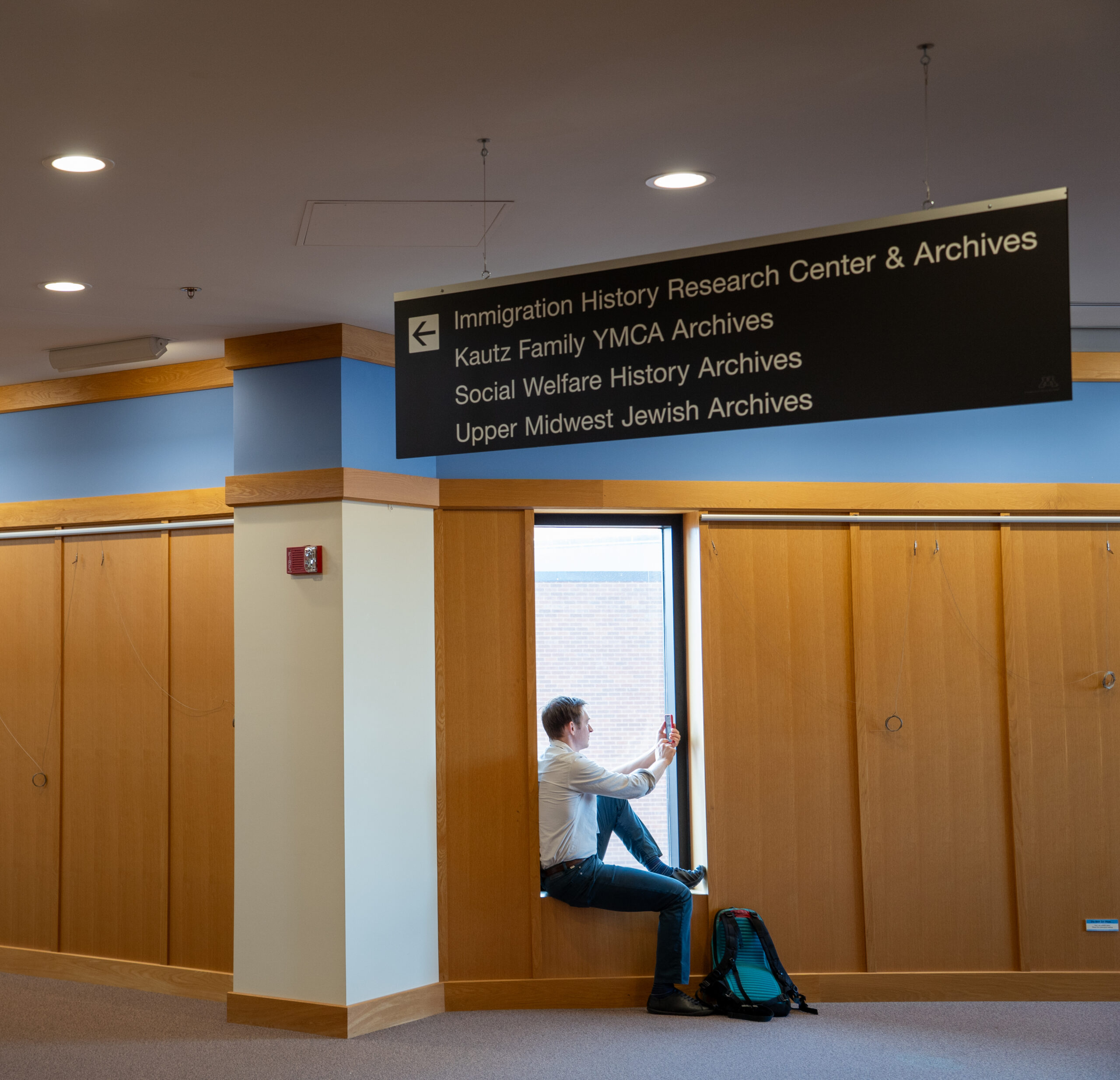A current and a past university history professor met to discuss the importance of engaging in immigration history.
Byline: By Henry Stafford
On the day of his inauguration, President Donald Trump issued 10 executive orders aimed at immigration practices and policy, including revoking birthright citizenship, halting refugee admissions and expanding who is targeted for deportation.
If there were ever a time to engage with the history of immigrants, it’s now, said Llana Barber, the newly-appointed director of the Immigration History Research Center (IRHC) at the University of Minnesota, and Erika Lee, former university history department professor and current Harvard University professor, during a meeting in February hosted by the history department book club.
Sarah Chambers, head of the university’s history department and an organizer of the talk, said their joint talk served as an opportunity to bring together the previous IHRC director with the new one to discuss immigration history. The talk also promoted evidence-based discussions around the history of immigration.
Barber said the level of stigma currently directed by politicians against immigrants is not new.
“Historically, blaming people perceived as foreign has been a way to distract from economic failure or failures of economic policy, to distract from political crisis,” Barber said.
The U.S. immigration system has not suddenly become less accepting but has evolved into an exclusionary system over decades, she said.
“This transformation from an immigration system to a system of mass exclusion has been in process for half a century, and so while I do think we’re in a particularly perilous moment, I also think that these conversations are always important,” Barber said.
Barber said studying history, especially the history of immigrants, is important to understand what is happening in the present.
“Ultimately, I think that you can’t understand the present without understanding history,” Barber said. “If we’re going to be using the past to understand the present, we need to make sure that we are accurately reflecting on what actually happened in the past.”
Barber said the current administration’s immigration policy affects everyone in the country, not just immigrants.
“We all share our neighborhoods, and we all share our nation with people who are from other places in the world,” Barber said. “So, these transformations of U.S. immigration law are having a really serious impact on a lot of people’s lives.”

Alex Nelson, a third-year history major at the university whose mother was born in Mexico, said he finds immigration history personally relevant.
“I spend a lot of time with my mom,” Nelson said. “To ignore that part of me, I think, wouldn’t be very useful.”
Nelson, a history major, said there is a misconception that immigrants forget their home countries when they come to the U.S.
“They forget their culture. You won’t call your family. You won’t make the dishes you grew up with. You won’t speak your language. But [all] that definitely isn’t true,” Nelson said.
Chambers said it is also important for children of immigrants to engage in their history so they can preserve their stories.
“They may already know quite a bit about the history, but want to dig deeper,” Chambers said. “And do research, and maybe for recent immigrant groups, create archival materials, make sure that there are collections saved of the history of their group.”
Talks such as this also promote productive, evidence-based discussions around the history of immigration, Chambers said.
Lee and Barber discussed their backgrounds in immigration history during the talk. They also talked about the IHRC and its current projects, like Immigrant Stories, brief digital stories about the personal experience of an immigrant or refugee.
With the current political state, immigrants need to continue their engagement with their history to survive, Nelson said.
“If the political environment is more anti-immigrant, I think it becomes more important to make that historical practice obvious to not shy away from being an immigrant as some people might, because that’s where that culture goes to die,” Nelson said.


